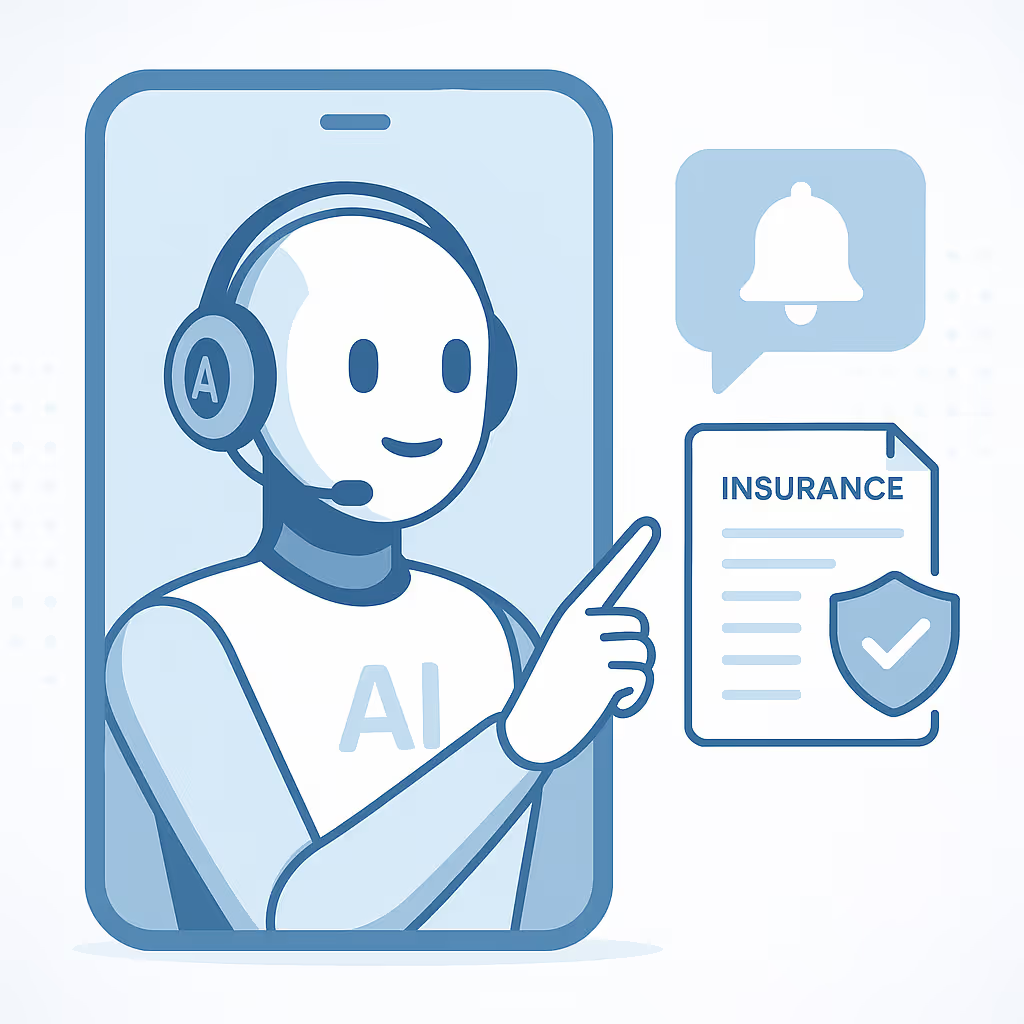Transforming Business Resilience: Embracing a 24/7 AI Workforce
In a world where every second matters, businesses are under increasing pressure to respond faster and operate more efficiently. Imagine an environment where customer queries are addressed at any hour, where compliance is never compromised, and where operational efficiency is not just a goal but a reality. This is the promise of a 24/7 AI workforce—a reality that non-technical teams can achieve through the intelligent implementation of AI strategies such as those offered by Fluents.
The Operational Challenge: Beyond Human Hours
Traditional business models often find themselves shackled to the limitations of human operation—office hours, manual processes, and increased operational costs. In industries like insurance and healthcare, the stakes are particularly high. Missed calls can mean lost leads or dissatisfied clients, and any lapse in compliance can result in hefty fines. Furthermore, the customer of today expects more alacrity, more personalization, and certainly more availability.
The solution lies not merely in expanding human resources but in expanding the capabilities beyond human limitations—an AI workforce capable of operating continuously, tirelessly, and efficiently.
Fluents: Bridging Gaps with Seamless AI Integration
Fluents, a voice AI platform, offers an elegant answer to these challenges. With its sophisticated and compliant voice automation, businesses can gracefully transition from static IVR systems to dynamic, intelligent workflows. Consider a healthcare provider managing appointment scheduling and patient intake through automated calls that are not only swift but also audit-ready. Similarly, an insurance firm could handle claims and quoting processes through sub-second latency voice interactions, ensuring compliance and customer satisfaction.
In practical terms, Fluents allows businesses to leverage no-code tools for operators and extend capabilities with APIs and webhooks for developers. This agility in deployment and expansion ensures that companies can tailor their AI workforce to meet specific needs immediately, offering resilience in fluctuating markets.
Navigating Ethical and Operational Implications
While the transformation to a 24/7 AI workforce promises efficiency, it also brings to the fore important ethical and operational considerations. Incorporating AI into customer interactions requires a balance between automation and the human touch. There is a fine line in ensuring AI interactions remain transparent and human-centric, a line that platforms like Fluents navigate by preserving conversational transparency and capturing consent effectively.
Moreover, maintaining compliance in a digitized operational environment means more than ticking boxes. It demands a consistent audit trail, a feature Fluents inherently integrates with its audit-ready transcripts, ensuring that regulatory requirements are managed seamlessly.
The Future: A Collaborative Human-AI Partnership
As we look to the future, the adoption of AI workforces signals a shift towards a more integrated collaboration between man and machine. This hybrid approach allows businesses not only to scale operations efficiently but also to refocus human talent on high-value, strategic initiatives. The competitive edge of tomorrow will likely belong to those who can blend AI's precision and efficiency with human creativity and empathy.
In conclusion, the journey towards building an effective AI workforce is not a mere technological upgrade—it is a progressive step towards redefining operational paradigms. Companies investing in this transformation stand to not only improve bottom-line metrics but also foster more impactful relationships with their stakeholders. As AI capabilities continue to evolve, so too will the opportunities to innovate and adapt, shaping an era of business resilience and forward-thinking leadership.
From 10 calls a day to 85,000, Fluents scales with you. Automate globally, integrate deeply, and never worry about your call infrastructure again.

Stay Connected
Check out our latest updates, customer stories, and resources to keep leveling up with Fluents.
FAQs on Building Your AI Workforce
Explore common questions about building AI workforces and their impact on business operations.
A 24/7 AI workforce can significantly enhance operational efficiency by allowing businesses to operate uninterrupted. In industries like healthcare, handling appointment scheduling via AI-driven automated calls reduces wait times and error rates, ensuring audit readiness. Similarly, in insurance, AI can quicken claims processing and eliminate delays, addressing client queries instantaneously, thereby improving satisfaction and compliance. The operational efficiency comes from systematic AI integration that bridges traditional human-hour limitations, offering a solution that is both tireless and adaptable. By employing AI strategies from platforms like Fluents, businesses can scale operations while ensuring compliance through agile workflows and integration capabilities such as APIs and webhooks.
Implementing a 24/7 AI workforce brings forward important ethical considerations, particularly in balancing automation with human touch. It's essential to maintain transparency in AI interactions, ensuring that customers are aware they are interacting with AI and consent is duly captured. Platforms like Fluents address these concerns by preserving conversational transparency and integrating audit-ready transcripts that secure compliance. Furthermore, businesses must ensure that AI systems are designed to respect privacy and comply with regulations, maintaining an ethical balance. Ethical AI deployment should prioritize user trust, integrate seamless human oversight, and adapt continually in response to evolving ethical norms and regulatory landscapes.
Businesses can strategically scale and innovate by adopting a hybrid model of AI-human collaboration. A complementary approach allows AI to take over repetitive tasks, while human employees focus on strategic, high-value initiatives. This collaboration fosters innovation by blending AI's data-driven precision with human creativity and empathy. To successfully scale, businesses should leverage AI platforms like Fluents, which offer agile deployment capabilities through no-code tools and developer APIs. This allows companies to tailor AI systems to their specific needs and rapidly adapt to market changes. In focusing on human-AI partnership, businesses not only enhance operational resilience but also pave the way for a forward-thinking culture that embraces continuous learning and innovation.




